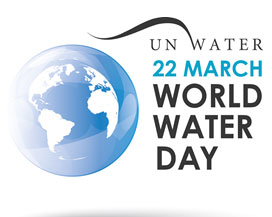 Water is an essential building block of life. It is more than just essential to quench thirst or protect health; water is vital for creating jobs and supporting economic, social, and human development.
Water is an essential building block of life. It is more than just essential to quench thirst or protect health; water is vital for creating jobs and supporting economic, social, and human development.
Today, there are over 663 million people living without a safe water supply close to home, spending countless hours queuing or trekking to distant sources, and coping with the health impacts of using contaminated water.
2018 Theme: Nature for Water
This year’s theme explores how we can use nature to overcome the water challenges of the 21st century.
Environmental damage, together with climate change, is driving the water-related crises we see around the world. Floods, drought and water pollution are all made worse by degraded vegetation, soil, rivers and lakes.
When we neglect our ecosystems, we make it harder to provide everyone with the water we need to survive and thrive.
Nature-based solutions have the potential to solve many of our water challenges. We need to do so much more with ‘green’ infrastructure and harmonize it with ‘grey’ infrastructure wherever possible. Planting new forests, reconnecting rivers to floodplains, and restoring wetlands will rebalance the water cycle and improve human health and livelihoods.
Sustainable Development Goal 6 – ensuring availability and sustainable management of water and sanitation for all by 2030 – includes a target to halve the proportion of untreated wastewater and increase water recycling and safe reuse.
 Water is the essential building block of life. But it is more than just essential to quench thirst or protect health; water is vital for creating jobs and supporting economic, social, and human development.
Water is the essential building block of life. But it is more than just essential to quench thirst or protect health; water is vital for creating jobs and supporting economic, social, and human development.